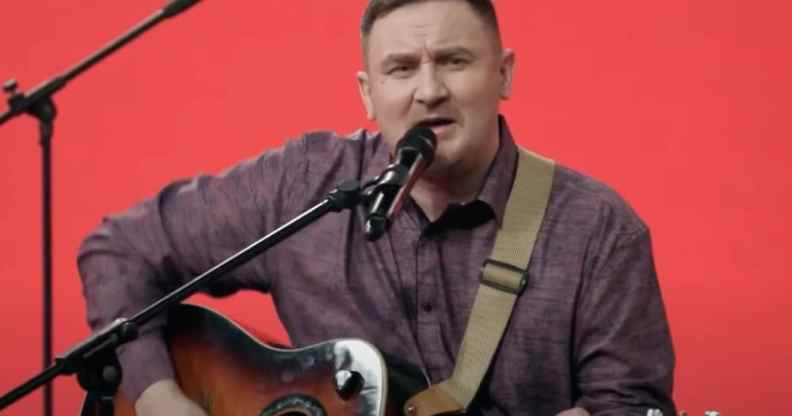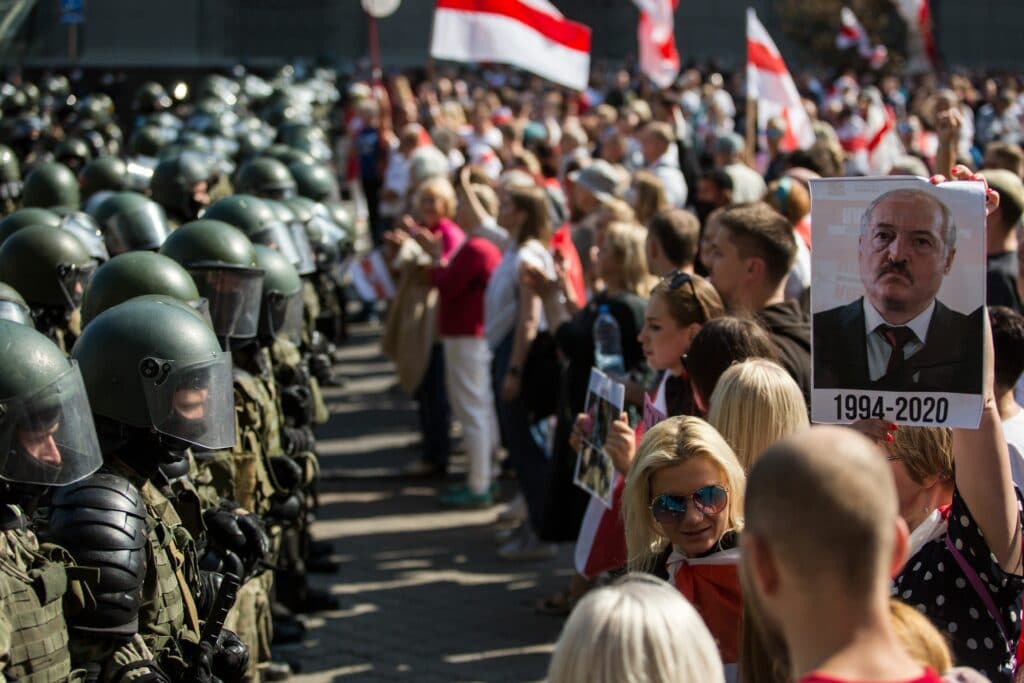Eurovision banned Belarus from 2021 contest over chilling anti-protest songs

Dmitry Butakov, the pro-government frontman of Belarus band Galasy ZMesta. (Screen capture via YouTube)
Eurovision banned Belarus for submitting songs that called for “no dissent” in the wake of protests against the president, producers have confirmed.
Bosses at the European Broadcasting Union, which produces the Eurovision Song Contest, admitted a stand had to be taken against president Alexander Lukashenko’s brutal crackdown on opposition.
The association’s director general, Noel Curran, said that Belarus’ public service broadcaster, BTRC, repeatedly submitted songs that challenged anti-government protesters despite the EBU’s warnings, The Guardian reported.
Curran was wary that the songs could further stoke the scenes of violence that seized Belarus last year as thousands protested against the rigged re-election of Lukashenko.
One song, “I Will Teach You“, Curran said contained “subliminal political undertones and meanings”. One line ominously said: “I will teach you to toe the line.”
A revised version of the track, which would have been performed by the pro-government band Galasy ZMesta, handpicked by the BTRC, was similarly deemed too overtly political for Eurovision.
As a result, the EBU formally banned Belarus from performing altogether in 2021, it said in a March statement. It was a decision, Curran said, that was not made lightly.
“We consulted externally as well as having our own concerns and decided to ban them or prohibit them taking part this year,” he explained.
“It’s tricky, you know, monitoring songs for political messages, for political messaging is tricky.
“This one we felt was quite clear, and particularly given what’s happening in Belarus, against the background of what has happened since the elections last year.
“But it’s not an area to jump into because once you set precedents around this, you know you could have everyone complaining about everybody else next year.”
What happened in Belarus?
Since the fall of the Soviet Union, Alexander Lukashenko sustained a 27-year rule on Belarus with a repressive regime denounced by the European Union.
A rigged election to extend his presidency threw his iron grip on Belarus into question. Lukashenko’s political opponents and international governments widely considered the August 2020 election as fraudulent.
Lukashenko exerts power over vote counting, as well as the press and security.

Belarusian servicemen block a street during an opposition supporters rally protesting against disputed presidential elections results in Minsk. (TUT.BY/AFP via Getty Images)
Thousands immediately packed the streets for months-long protests that called for his ouster – one protest in Minsk, the capital, is thought to be the largest in the country’s history.
It nearly worked. But Lukashenko, an authoritarian, squashed them, forcefully clinching to power using his Soviet-era domestic security agency, the KGB, to swiftly punish what he saw as disloyalty.
Soon enough, a heavy cloak of security officers shrouded the capital. Police fired tear gas, water cannons and rubber bullets, internet services were cut off, demonstrators were tortured in detention centres and journalists were jailed simply for reporting on the protests.
In total, more than 1,800 criminal cases were launched against anti-government protests, according to the Minsk-based Viasna Human Rights Centre.
Some 33,000 were detained by police following the presidential election, the group added.

